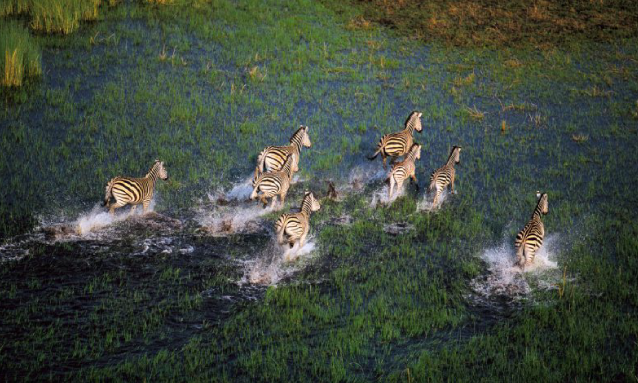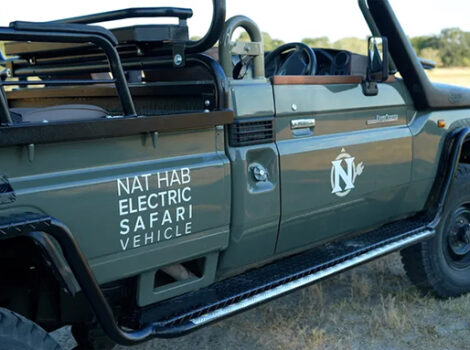
Food and Agriculture Organization (FAO) and the French Development Agency (AFD) on Wednesday launched a new 3.5 million Euro project to improve sustainable wildlife management and food security in the world’s largest terrestrial transfrontier conservation area.
Southern Africa’s Kavango-Zambezi Transfrontier Conservation Area, which straddles Angola, Botswana, Namibia, Zambia and Zimbabwe, each year experiences large scale migrations of megafauna, in particular elephants, where 50% of the total population of African elephants can be found. However, the area is also home to poor rural communities whose livelihoods depend on agriculture, fishing and hunting and who are not always able to meet their basic needs due, in part, to erratic rainfall and frequent droughts. Under the Sustainable Wildlife Management Programme, the new project will partner with the governments of Botswana and Namibia to address threats from unsustainable levels of wildlife hunting in some areas, habitats closure and fragmentation, which prevent animals from reaching the resources they need to survive, as well as poaching and killing of animals as a result of human-wildlife conflicts.
“The focus of the project is to benefit both the wildlife and ecosystems in the Transfrontier Conservation Area and the resilience of local communities that rely on them, at least in part, for food and income, ” said Mette Wilkie, Director, Forestry Division, FAO.
Community conservancies
The project will focus on supporting the development of a network of community conservancies and community-based organisations that help manage community-owned land to ensure the conservation and sustainable use of natural resources for the benefit of local livelihoods. Namibia already has an impressive network of 86 community conservancies, which collectively cover 20% of the country and are home to nearly 230,000 people.
“This project aims to establish an effective network of community conservancies since they have proven to be a powerful means to combat rural poverty,” said Gilles Kleitz, Director of the AFD Ecological Transition and Natural Resources Department.
“In Namibia, for instance, conservancies contributed more than $10 million in benefits such as income, employment remuneration, and in-kind, for example, meat, to conservancy members in 2018. The overall economic contributions from these benefits amounted to more than $62 million, including the creation of over 5,300 jobs from conservancy related operations and enterprises.”
The project will be implemented with the support of technical partners such as Wild Entrust Africa in Botswana and the World Wildlife Fund in Namibia and will focus on Botswana’s Khaudum -Ngamiland wildlife dispersal area as well as in Namibia’s community conservancies of the Zambezi Region and around Khaudum National Park.
The results of the project will contribute to the creation of policies aimed at fostering community conservancies development, sustainable hunting and wildlife conservation and enhanced institutional and legal frameworks needed to implement these policies. The Sustainable Wildlife Management Programme is already promoting a similar approach in Zambia and Zimbabwe. It also ensures a participatory and community rights-based approach across all its sites.
About the French Development Agency (AFD)
The French Development Agency is a public institution that implements France’s policy in the areas of development and international solidarity. The teams carry out more than 4,000 projects in France’s overseas departments and territories and another 115 countries to support the Sustainable Development Goals (SDGs).
About the Sustainable Wildlife Management Programme
The Sustainable Wildlife Management Programme is an Organisation of African, Caribbean and Pacific States (OACPS) initiative, funded by the European Union with co-funding from the French Facility for Global Environment (FFEM). It develops innovative, collaborative and scalable new approaches to conserve wild animals and protect ecosystems, while at the same time improving the livelihoods of indigenous peoples and rural communities who depend on these resources. The SWM Programme is being implemented by FAO, the French Agricultural Research Centre for International Development (CIRAD), the Center for International Forestry Research (CIFOR) and the Wildlife Conservation Society (WCS).
Source: http://www.fao.org/news/story/en/item/1372487/icode/



